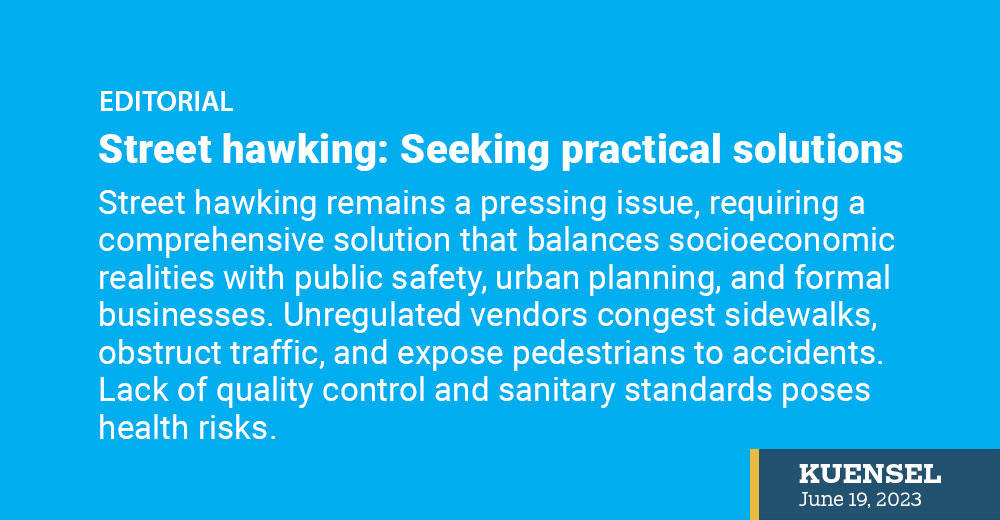Despite the government’s previous ban on street hawking, the problem persists, highlighting the need for a comprehensive and practical solution that balances the socioeconomic realities of the hawkers with the concerns of public safety, urban planning, and formal businesses.
While street hawking provides a means of survival for many individuals, it brings forth a range of challenges that cannot be overlooked. Public safety remains a pressing concern, as unregulated vendors congest sidewalks, obstruct traffic, and expose both themselves and pedestrians to potential accidents. Moreover, the lack of quality control and sanitary standards associated with street hawking poses risks to public health.
Another issue is the informal nature of street hawking, which often leads to tax evasion, undermining the formal economy. Established businesses operating from fixed locations are burdened with taxes and regulations, placing them at a disadvantage against the informal sector. Additionally, urban planning suffers as street hawking hampers the intended use of public spaces and detracts from the aesthetic appeal of the city.
Rather than a complete ban, a more practical approach to street hawking in Thimphu would involve implementing regulatory frameworks and support systems to address the challenges while acknowledging the socioeconomic realities of the hawkers.
Allowing designated areas where street hawking can operate without impeding pedestrian flow and traffic is a good move by the government. By establishing well-planned hawking zones, the government can centralise activities, ensuring public safety, and easing the burden on urban spaces.
Introducing a licensing system that regulates the number of hawkers allowed in each zone is another way to streamline the issue. This can help control overcrowding and ensure that vendors adhere to certain standards, such as hygiene and safety practices. Regular inspections and penalties for non-compliance should also be enforced.
Recognising the economic necessity of street hawking, the government is planning to offer vocational training programs to hawkers to enhance their skills. This can certainly empower them to explore alternative livelihood options and transition into formal employment sectors.
For all these to succeed, though, engaging relevant stakeholders will be critically necessary, including street hawkers, urban planners, business associations, and civil society organisations. Their input can help shape policies that strike a balance between economic inclusivity and urban development.
Public awareness and education can also help: Launch public awareness campaigns to educate citizens about the importance of supporting formal businesses while also fostering empathy towards street hawkers.
Dealing with the growing street hawking dilemma in Thimphu calls for a pragmatic and comprehensive approach. What we know is that banning street hawking, which has been tried before, will not work. It is unfair on a certain section of the population.


